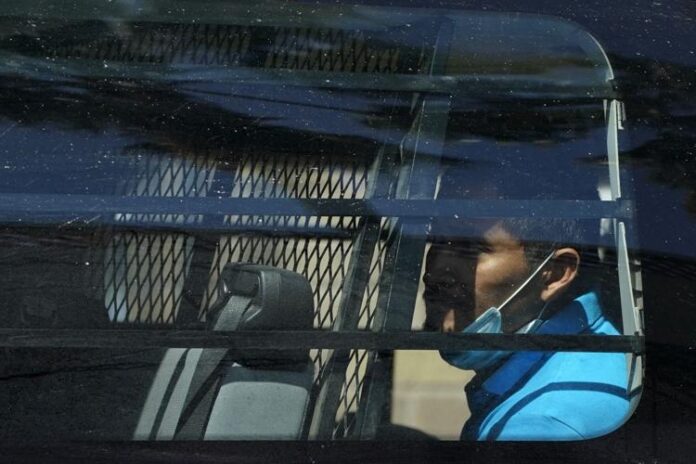
The greatest number of unaccompanied children (UACs) arriving at the U.S. border are being “resettled” in Texas.
UACs have been sent to all 50 states and two U.S. territories, including Puerto Rico and the Virgin Islands, according to data from the U.S. Health & Human Services Department (HHS) and the Office of Refugee Resettlement (ORR), are tasked with their oversight and care.
From fiscal years 2015 to 2023, the greatest total number of UACs were sent to Texas, followed by California and Florida. Every year, the most populous states received the greatest number of children.
Texas received the most UACs in all nine fiscal years of 82,391, followed by California (68,249), and Florida (60,192).
From fiscal years 2015 to 2018, California received the highest number of UACs. By fiscal 2019, Texas began receiving the greatest number, and has every year, primarily followed by California, then Florida.
From March 2003 to July 2022, ORR says it has cared for more than 409,550 children. The overwhelming majority arriving are males by a roughly 70-30 split, according to ORR data.
According to federal law passed in 2003, “When a child who is not accompanied by a parent or legal guardian is apprehended by immigration authorities, the child is transferred to the care and custody of” the ORR. Federal law requires ORR to provide UACs with food, shelter, and medical care and release them “to safe settings with sponsors (usually family members), while they await immigration proceedings.”
ORR defines sponsors as “adults who are suitable to provide for the child’s physical and mental well-being and have not engaged in any activity that would indicate a potential risk to the child,” who has passed a required criminal background check. The sponsor “must agree to ensure the child’s presence at all future immigration proceedings” and ensure that the minor reports to ICE “for removal from the United States if an immigration judge issues a removal order or voluntary departure order,” according to federal law.
Multiple reports have been published highlighting serious deficiencies of ORR oversight, including allegations of sexual abuse of children in ORR-contracted facilities.
A Florida grand jury report found the Biden administration was “facilitating the forced migration, sale, and abuse of foreign children,” through the ORR’s UAC resettlement program. “This process exposes children to horrifying health conditions, constant criminal threat, labor and sex trafficking, robbery, rape, and other experiences not done justice by mere words,” it concluded.
Florida Gov. Ron DeSantis called for the grand jury to convene, clarifying that “Florida receives no information on backgrounds, criminal history or immigration status of the UAC brought here, nor does the state have any assurance the UAC are in-fact minors.”
Florida Attorney General Ashley Moody called on Congress to investigate, which resulted in hearings this year. UACs have been placed with unrelated individuals and put in situations “where they are subject to abuse, including rape, molestation, and effectively forced to work to pay for their travel to the United States in violation of child labor laws,” Moody said.
HHS states that it has “strong policies in place to ensure the privacy and safety of unaccompanied children by maintaining the confidentiality of their personal information,” and has historically not communicated with state governments where children are sent. It claims this is because the “children may have histories of abuse or may be seeking safety from threats of violence” and “may have been trafficked or smuggled.”
While it won’t release information about individual children that it says “could compromise their identity or location,” it does disclose how many UACs are sent to states and counties.
From fiscal 2015 to 2023, the overwhelming majority of UACs were released in Texas, followed by California and Florida.
Under the Obama administration, in fiscal 2015, California received 3,629 UACs, Texas 3,272, and Florida 2,908.
By fiscal 2019, under the Trump administration, Texas received 9,900 UACs, California 8,447, and Florida 7,408.
In the first full fiscal year of the Biden administration, in fiscal 2021, Texas received 15,341 UACs, Florida, 11,145, and California, 10,773.
The outlier year was fiscal 2022, when all three states received the highest number of UACs in recorded history: Texas (19,071), California (13,730), and Florida (13,195).
In fiscal 2023, Texas received the most (16,394), followed by California (11,121) and Florida, (10,542).
In fiscal 2023, 22 Texas counties received UACs. The majority were sent to Harris County (over 6,000), Dallas County (over 3,200) and Travis County (over 1,700), according to HHS ORR data.
In California, 21 counties received UACs in fiscal 2023. Los Angeles County received the most (nearly 4,000), followed by Alameda County (nearly 900) and Orange County (nearly 600).
In Florida, 29 counties received UACs in fiscal 2023. Miami-Dade County received the most (nearly 2,000), followed by Palm Beach County (over 1,500) and Lee County (over 900).
These numbers exclude all children arriving in family units being released into the U.S.
The top states that received the most UACs in fiscal 2023, rounding out the top 10, were New York, Maryland, Virginia, New Jersey, North Carolina, Tennessee, and Louisiana.
Republished with the permission of the Center Square.













